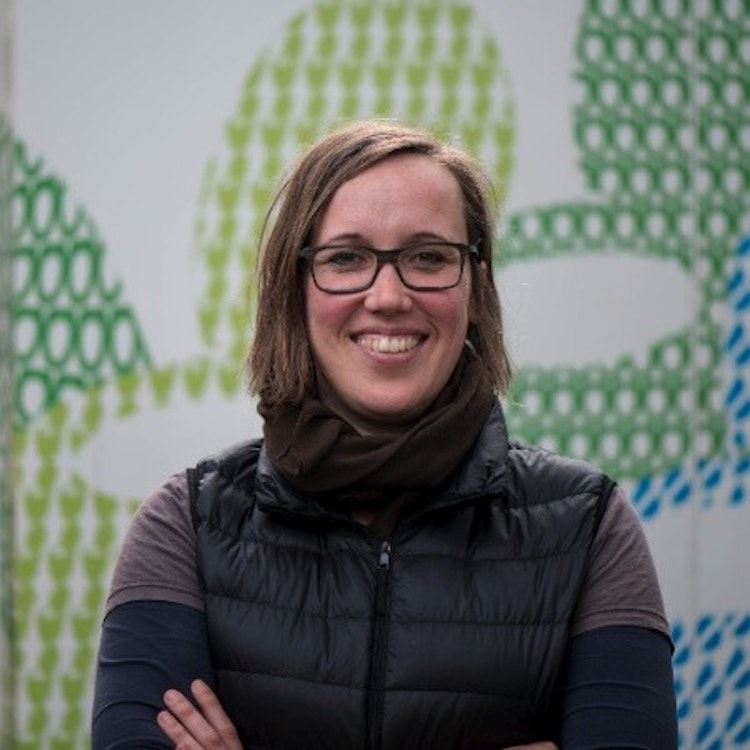One of the key challenges for founders looking to scale is getting their startup in front of investors — and that can feel even trickier as a diverse founder or a founder living outside of major startup hubs like London, Cambridge and Oxford.
But the game has changed since the pandemic. While it was once almost unheard of to gain serious investor attention without a face-to-face meeting, the forced normalisation of online communication tools like Zoom have made virtual interactions invaluable.
Below, we look at some of the best ways to connect with potential investors today.
1/ Ask for warm referrals
It’s human nature to trust something more when it’s recommended by someone you know — and that translates into the investment world, too. Warm referrals, the term used to describe being introduced via a mutual connection, is a popular way for founders to meet potential investors.
Warm referrals are a really good way as you're going on the basis of trust — they're successful because they're relying on the trust of somebody who's taken the time to make that introduction.
“If you talk with an investor and they’re not interested, that's okay — create the relationship, establish a conversation and then ask that person if they can recommend and introduce you to someone else,” Luis Lancos, founder of GenAI startup DataWhisper, tells Sifted. “Having someone send an email of introduction is really powerful.”
Benjamin Storey, head of an investor-founder platform at Barclays Bank UK, agrees. Storey leads the Barclays Demo Directory which looks to bridge the gap between investor and founder and tackle this problem head on. He says that founders need to make sure that they are investor ready as soon as possible.
“Warm referrals are a really good way as you're going on the basis of trust — they're successful because they're relying on the trust of somebody who's taken the time to make that introduction,” he says.
2/ Attend events — and get feedback
Even if a startup isn’t participating in an event, attending still offers founders the chance to network with like-minded business leaders and, crucially, potential investors.
No matter how experienced you might be at telling people about your business, why it matters or how investable it might be, there is always more to learn and improve from others.
“Being in a room with investors and listening to what their feedback is about other companies helps you shape your listing and understand what investors are looking for,” says Storey.
Virginia Gardiner, founder and CEO at waterless toilet company Loowatt, agrees, noting the importance of getting feedback in the early stages to allow for business improvements.
“If you have a compelling idea and have built it into a business model, financial model or pitch deck, share it with friendly people who know about the space you are working in like investors, marketeers, designers, finance experts, experienced entrepreneurs or even your mum,” she says.
“No matter how experienced you might be at telling people about your business, why it matters or how investable it might be, there is always more to learn and improve from others,” she adds.
3/ Use online directories to pitch
Online databases can also be a vital resource, putting your startup’s details in front of many investors at once. These include sites such as Crunchbase and Dealroom, as well as free platforms like Demo Directory by Barclays.
On Demo Directory, founders create a free listing and investors use the platform’s 15 filters to create niche searches. Investors can then contact founders of interest.
“Demo Directory is a one-way marketplace where founders can create a listing and tell us about the business, their opportunity, what success they've had, what they're raising and where they're going,” says Storey. “These questions have been written by investors, who have essentially built the platform by telling us what they need. We only allow the investor to get in touch with founders to streamline the process.”
If you're a founder creating a listing, you’re getting assurance that you're getting it in front of over 300 investors with one pitch.
There are currently 305 investors on the platform: 18% are angels or angel networks, 8% are ultra-high-net-worth individuals, 52% are early-stage VCs and 22% are growth-stage VCs. Storey says the value of Demo Directory is that it gives founders confidence that investors have watched their demo video, read up on their pitch and are genuinely interested before they get in touch — rather than founders wasting time with multiple investor meetings that may be the wrong fit.
“If you're a founder creating a listing, you’re getting assurance that you're getting it in front of over 300 investors with one pitch,” he says.
Gardiner used Demo Directory to pitch Loowatt. She says good things can happen when you enter your ideas into less familiar networks and sectors.
The internet can be a nerve-wracking place for founders when you load your work onto new platforms or networks.
“The internet can be a nerve-wracking place for founders when you load your work onto new platforms or networks,” she says. “But investors know to proceed with caution. In the end, raising investment is person to person, and finding new networks will lead you to people you might not otherwise meet.”
4/ Build a network throughout your startup’s lifecycle
Similar to warm referrals, Lancos says founders who build a network throughout their startup’s lifecycle will help kickstart investor conversations when the time is right.
“I nurture relations that I know will not invest now, but will help me to open doors in the next round,” he says. “It's all about people and building a network, creating those relations and maintaining them.”
5/ Look for investors which embody your values
Gardiner notes that diverse founders face obstacles due to stereotypes, biases in pitching, access to networks, representation in investment communities and funding disparities.
Despite recent recognition of this problem, she says it’s a long way from equalising — but recommends founders work on finding people and networks who want to support them and their work.
The Demo Directory filters allow investors to search for diverse founders and those at locations outside of the ‘golden triangle’ of London, Cambridge and Oxford.
“To date, 54% of all of our founder applications have had an ethnically diverse founder, 38% have a female founder and 55% are outside of London,” says Storey.





